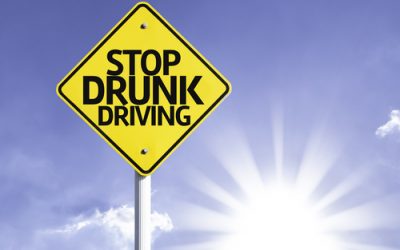In California, when you are arrested for DUI you will typically be taken to a police station or sheriff station to be processed, and potentially held in jail overnight. Typically, the next day you will be released under one of two circumstances:
- Released with no bail
- Released once you or your family post bail, either with your own money or a bail bond
Either way, most DUI suspects—including most felony DUI suspects—will be released within 24 hours. Once you are released, the first thing you should consider doing is enrolling in an alcohol or drug treatment program. This can dramatically help your case, whether it’s a first DUI, repeat DUI or felony DUI charge.
Why does rehab/treatment help my case?
If you sign up for a treatment program on your own, it shows that you recognized you have a problem and you are already taking steps to fix it. This is one of the top things judges look at in a defendant—that they are taking responsibility for their actions and that they are unlikely to commit DUI again. If you are already in drug/alcohol treatment, it shows that you are putting in effort to become a sober, safe driver.
Seeking treatment helps different DUI cases in different ways:
- In a first time DUI, it means you are likely to avoid any jail time for your actions.
- If you have previous DUIs, it can lessen the consequences and help you get your license back sooner, because it shows the judge you are working to break the trend and change your life.
- If you face a felony DUI charge, voluntarily attending treatment sends a strong message to the judge. It can help reduce the consequences or even reduce the charge to a non-felony offense, which will dramatically improve your future.
Doesn’t going to treatment make me look guilty?
Some defendants worry that going to treatment will make them look guilty. After all, if you were driving sober, why would you go to rehab? But this only applies to a small number of cases:
- If you were stone sober when you were pulled over, and you intend to dispute being intoxicated at all, your lawyer may advise you not to go to treatment programs unless ordered by the court.
- If you really were drinking or using drugs, however, and you plan to bargain down your DUI to a lesser charge, your lawyer will almost certainly recommend you start treatment.
Ask your DUI lawyer what the best strategy is in your specific case.
How soon should I enroll in treatment?
As soon as possible.
If you want your treatment to show that you are trying to change your ways, it’s best to enroll within hours or days of being released from custody. The sooner, the better.
If it’s already been longer, you can still enroll and it will still help. The only true deadline is that you will want to already be enrolled in and attending your treatment program before your arraignment. The arraignment is a short court hearing where the charges against you are read and you enter your plea. You will want to show up at this hearing with as many treatment sessions behind you as possible.
Usually the arraignment is not until two or more months after your arrest. In some cases, however, it can be a matter of weeks.
What kind of treatment program should I go to? Do I have to go to rehab?
Not all treatment programs involve checking into a rehab facility. Many involve meetings that you attend several times per week, while you continue to live your normal life. However, in a felony fourth DUI, a DUI involving injury or death, and some other types of repeat DUI offenses, it may help to go to a full rehab/detox program. It is a much more dramatic step that shows an immediate commitment to sober living.
An experienced DUI lawyer will not only be able to recommend the type of program to use, they may also know which specific programs are most trusted by the courts in your area.
Have you been charged with DUI? We can connect you with an experienced Los Angeles DUI lawyer and get you a FREE consultation. Fill out the form to the right or call (310) 896-2724 and get your free consultation today.






